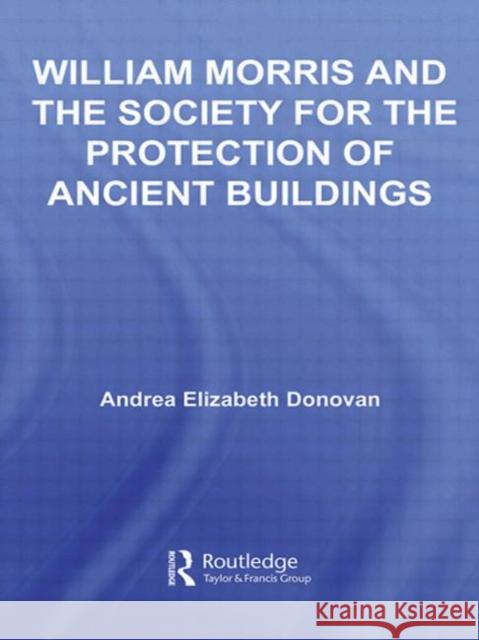William Morris and the Society for the Protection of Ancient Buildings » książka
William Morris and the Society for the Protection of Ancient Buildings
ISBN-13: 9780415955959 / Angielski / Twarda / 2007 / 170 str.
William Morris and the Society for the Protection of Ancient Buildings
ISBN-13: 9780415955959 / Angielski / Twarda / 2007 / 170 str.
(netto: 741,76 VAT: 5%)
Najniższa cena z 30 dni: 705,23
ok. 16-18 dni roboczych.
Darmowa dostawa!
The Society for the Protection of Ancient Buildings, founded by artist and craftsman William Morris in 1877, sought to preserve the integrity of historic buildings by preventing unnecessary repairs and additions. William Morris's intention and that of the SPAB was that buildings of any period had a life that was best protected through the conservative repair of what was falling into ruin and the prevention of injury to buildings by safeguarding them as much as possible and practical. This practice became known as historic preservation. The extremes of the Gothic Revival motivated the founding of the SPAB: in the mid-nineteenth century, many historic buildings were restored to appear Gothic in style. Although some restoration had occurred in past centuries, it was in Morris's age that this practice became excessive. Early SPAB work involved speaking against restoration and providing alternate ideas to promote preservation. Due to the continued monitoring of preservation practices concerning historic buildings, along with the evolution of techniques and adaptations throughout the years, the SPAB is now the oldest and largest conservation society in Britain. The SPAB so influenced late nineteenth century perspectives of historic preservation that it motivated the foundation of similar societies in Britain, in Europe, and around the world. This dissertation, based on many original documents from the SPAR archives in London, emphasizes the founding and development of the SPAB in the late nineteenth century. The SPAB is best understood by appreciating Morris's ideology and motivation, the popularity of the Gothic Revival and the preservation issues that evolved from it, and the SPAB'seffectiveness in Britain through specific case studies. Then these issues are followed onto the continent, specifically in Germany and France, to examine the SPAB's influence there. Finally, the SPAB's twentieth century success is considered by looking at its current programs and cases.











